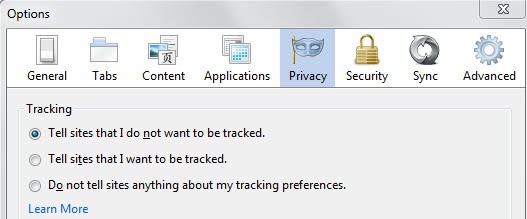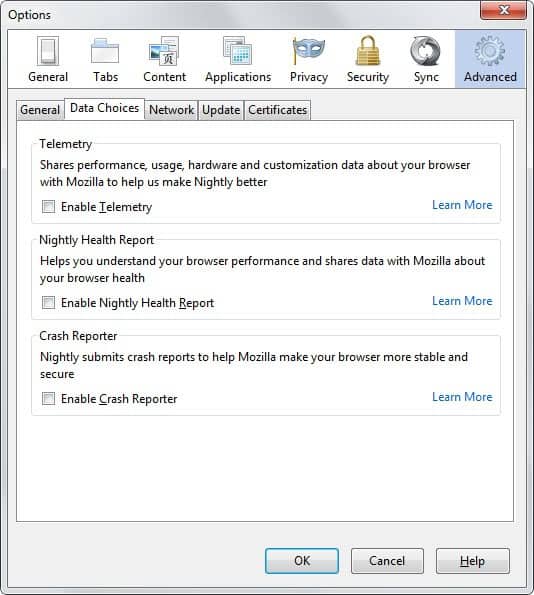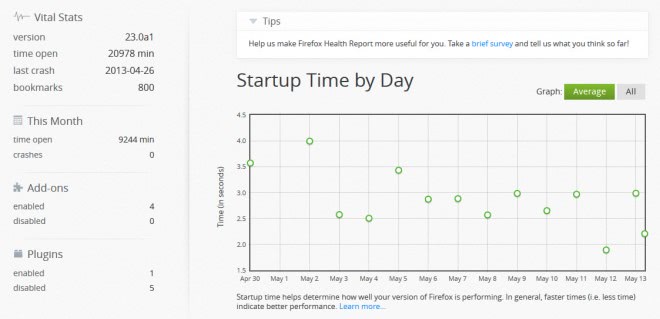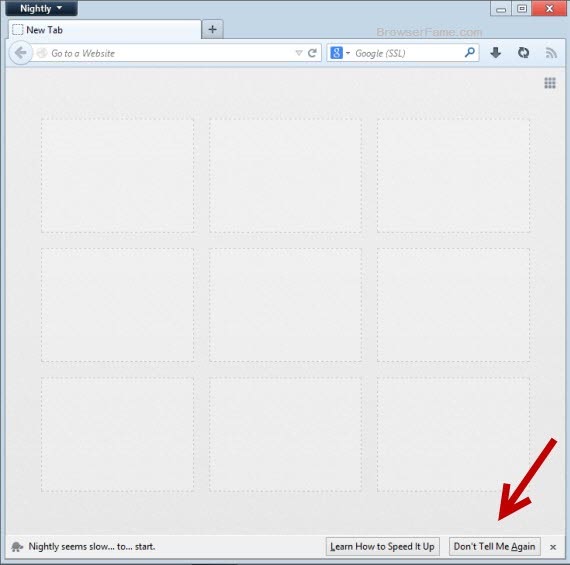Firefox 21.0: Find out what is new

Mozilla will release Firefox 21.0 on May 14, 2013 and shortly thereafter update the Beta, Aurora and Nightly channels of the browser to Firefox 22.0, 23.0 and 24.0 respectively.
The updates will be transferred to Mozilla's ftp server first before they will be announced on the official website. If you have configured automatic updates, you should not have to worry about that though as your browser will get updated automatically when you start it after the update becomes available.
Firefox 21 What’s New
We rely on the beta release notes - as always - as our main source to find out what is new in this version of the Firefox web browser. Note that Mozilla may have made pulled or modified individual items, and if that is the case, we will let you know once the final version comes out.
It is also important to note that the log only highlights some changes and not all of them.
Do Not Track improvements
The Do Not Track feature has been part of Firefox for some time now. You can enable it to add information to each connection request to tell sites about your tracking preference. Up until now, Do Not Track supported the two states "Tell sites that I do not want to be tracked" and "Do not tell sites anything about my tracking preference".
No option was provided so far to tell websites that you want to be tracked. That's why Mozilla added a third option to the browser's Do Not Track feature. You can now enable "Tell sites that I want to be tracked" as well in Firefox.
So, if you want to see targeted ads on the Internet check the new option to enable that.
- Click on the Firefox button and select Options from the menu that opens up.
- Navigate to the private tab in the Options window and make your selection under Tracking there.
Firefox Health Report
A preliminary implementation of the Firefox Health Report has been integrated into Firefox 21.0. FHR will collect technical information about the Firefox browser and the system it is running on. This includes the operating system and number of processors, the version of Firefox and the number and type of add-ons installed in the browser, as well as information about browser sessions and the age of the user profile.
According to the Firefox Health Report FAQ, it will help Mozilla make Firefox better in a number of ways, for instance by using the data sets to find add-ons or Firefox versions that contribute to performance or stability issues.
Mozilla notes that IP addresses are not logged by the feature, and that collected data will remain on their server for 180 days before it gets deleted.
You may wonder how that is different from Telemetry, another feature that sends data to Mozilla. While Telemetry runs tests based on part of the code base, Health Report collects general information about the browser instead and makes the information available to the user.
- You can check whether Firefox Health Report is enabled or not with a click on Firefox > Options > Advanced > Data Choices.
- Data that has been collected can be accessed on the about:healthreport page or via Firefox > Help > Firefox Health Report.
Slow Startup Warnings
Mozilla has integrated a slow startup warning feature in Firefox 21.0. It analyzes the startup time of the browser to display a notification to the user if a threshold is reached. It uses the average load time of the last five sessions to display a notification to the user if it is slower than 60 seconds.
- The preference group browser.slowStartup contains configuration options. To access it type about:config into the browser's address bar and hit enter.
- To disable the feature set browser.slowStartup.notificationDisabled to true.
- To change the threshold change browser.slowStartup.timeThreshold (milliseconds value)
H.264 support for Windows 7 and newer versions
Mozilla made the decision some time ago to integrate support for the proprietary format H.264 indirectly to Firefox. If the host operating system supports the feature, Firefox will make use of it.
Support for the format is first introduced for Windows 7 and newer versions of the Microsoft Windows operating system. If all goes according to plans, Vista users will receive support in the next version of the browser. Mozilla is also working on adding support to Windows XP, Linux and Mac systems and while there is no word yet on Linux and Mac availability, it seems that Windows XP users can start making use of H.264 from Firefox 24 on.
Smaller changes
- Removed thumbnails on Firefox's New Tab Page can now be restored
- Graphic related performance improvements.
- Improvements to Mixed Content Blocker feature. While it is still disabled by default, it will now display an icon in the address bar that improves the handling of these elements. To activate, set security.mixed_content.block_active_content to true.
- Web Audio API support. It is not enabled by default, set media.webaudio.enabled to true to enable it.
- The about:plugins page highlights now if a plugin is enabled or disabled in the browser.
Developer changes
- Remote profiling has been integrated into Firefox 21.0. It enables developers to profile remote devices using Firefox. The feature seems disabled by default. To enable it type about:config, search for devtools.debugger.remote-enabled and set it to true with a double-click.
- The Add-on SDK loader and API libraries have been integrated into the Firefox browser.
- The EX4 JavaScript library has been removed.
- Firefox for Web Developer changes
- Site compatibility changes
- Add-on compatibility for Firefox 21
Security updates
You find them all listed and linked on the Security Advisories page for Firefox.
MFSA 2013-48 Memory corruption found using Address Sanitizer
MFSA 2013-47 Uninitialized functions in DOMSVGZoomEvent
MFSA 2013-46 Use-after-free with video and onresize event
MFSA 2013-45 Mozilla Updater fails to update some Windows Registry entries
MFSA 2013-44 Local privilege escalation through Mozilla Maintenance Service
MFSA 2013-43 File input control has access to full path
MFSA 2013-42 Privileged access for content level constructor
MFSA 2013-41 Miscellaneous memory safety hazards (rv:21.0 / rv:17.0.6)

























This is horrible! – https://bugzilla.mozilla.org/show_bug.cgi?id=670684
Still looking for an answer ;-)
Sorry for the light OT, but is h264 free or not? Many say it is beacuse it has an open source implementation, i.e. x264. I don’t understand… Can you please help me?
MPEG LA announced in 2010 that end users would never be charged royalties, this includes free Internet streams.Royalties have to be paid for products that decode or encode H.264.
Sorry, I didn’t see your answer!
So do only manifacturers have to pay? What about OS makers and software developers (like VLC)? :)
l’d like to see Mozilla rate all the most popular add-ons and extensions on a basis of how much they slow down Firefox. 1080p Youtube videos that run beautifully in IE, Opera or Chrome are so choppy in Firefox that they look like what videos looked like when using AOL DSL years ago. If I disable almost all my extensions, Firefox runs nicely, and this is with 8 gig ram. I’m guessing that a top of the line video card is needed when running Firefox with their heavier extensions.
If you want a non ftp link, try http://download.mozilla.org/?product=firefox-21.0&os=win&lang=en-US
Usually just changing the current link to get the newer version around the time of release works i.e. 20.0 to 21.0
ftp://ftp.mozilla.org/pub/mozilla.org/firefox/releases/21.0/
Thanks!
Final is now on the mozilla ftp server.
“The about:plugin page highlights now if a plugin is enabled or disabled in the browser”
about:plugins , just let you know
Thanks, corrected.
To disable the feature set browser.slowStartup.notificationDisabled to false. : set it to true :)
I’ve been using Firefox 21 since beta 6. Everything works fine. I’ve disabled Health Report together with Slow Startup Warnings, but this choice is psychological rather than rational : I am in a pathological state concerning home phoning, even when it is anonymous ( NO IP sent ).
Right, thanks and corrected.
Any other mirror?
Since it has not been officially released yet, no.
Links to download?
The download is not yet posted on Mozilla’s ftp server.